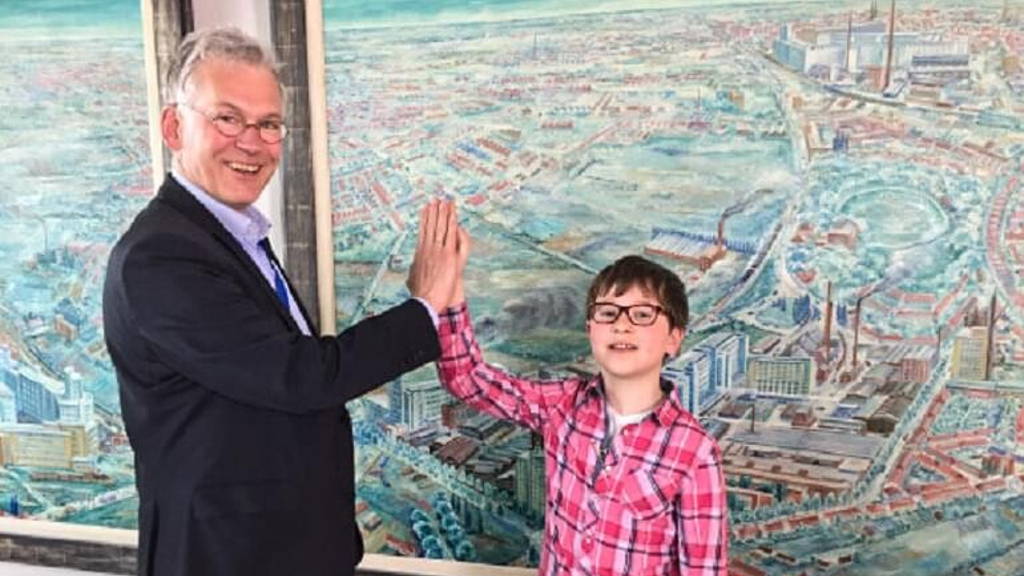Dutch tech company Philips was once a brand name more closely associated with consumer electronics and light bulbs. For the past years it has been investing heavily in health technology as the global population ages and information technology makes a different approach to medicine possible, Van Houten said in his interview with CNBC.
As more and more data is collected on people, both at home and in the hospital, Van Houten expects to see artificial intelligence that makes sense of it all — taking burdens off physicians and improving the precision of diagnosing disease.
"So we need to double down on healthcare. We see so much opportunities, like prevention, or diagnostics. "Wouldn't it be great if you do have a disease, if you could be diagnosed first time right?"
Other opportunity are telehealth or sensor technology - detecting how you are doing - supporting patients at home, in the care of their own family. Cloud technology can help connect caretakers, patients and doctors, wherever they are. This technology, Van Houten adds, is now in an acceleration phase. "And we will be right there where it happens."
Looking at combining technology, sensors can be used to collect personal data that can be interpreted by AI platforms to create a more personalised treatment for someone’scondition. AI and machine learning can be used to sift through and interpret masses of data in order to better understand diseases and in doing so, work towards the first time right diagnosis the Philips-CEO referred to earlier.
During WEF Davos 2017, Philips listened to the future generations by asking them two questions: how do they imagine the future of healthcare and what makes a good leader? In the video below you can see what they came up with.
###FransvanHouten###
As more and more data is collected on people, both at home and in the hospital, Van Houten expects to see artificial intelligence that makes sense of it all — taking burdens off physicians and improving the precision of diagnosing disease.
New challenges
Philips has been in healthcare for over a hundred year, but there are many new challenges that need to be addressed, such as costs of healthcare and an aging population in many countries. The world needs a lot of health technology to support the needed changes to keep healthcare affordable and improve it and Philips is an innovative technology company."So we need to double down on healthcare. We see so much opportunities, like prevention, or diagnostics. "Wouldn't it be great if you do have a disease, if you could be diagnosed first time right?"
Other opportunity are telehealth or sensor technology - detecting how you are doing - supporting patients at home, in the care of their own family. Cloud technology can help connect caretakers, patients and doctors, wherever they are. This technology, Van Houten adds, is now in an acceleration phase. "And we will be right there where it happens."
Future of healthcare
Asked about the future of health in 5 to 10 years, Van Houten points at personalised health and precision medicine. An example is the connected toothbrush Philips already markets, that through gamification teaches kids to brush well. In the near future this toothbrush could send information by measuring someone’s saliva to care professionals or an AI platform, that can then warn someone to take a pill because a cold is coming on.Looking at combining technology, sensors can be used to collect personal data that can be interpreted by AI platforms to create a more personalised treatment for someone’scondition. AI and machine learning can be used to sift through and interpret masses of data in order to better understand diseases and in doing so, work towards the first time right diagnosis the Philips-CEO referred to earlier.
During WEF Davos 2017, Philips listened to the future generations by asking them two questions: how do they imagine the future of healthcare and what makes a good leader? In the video below you can see what they came up with.
###FransvanHouten###






